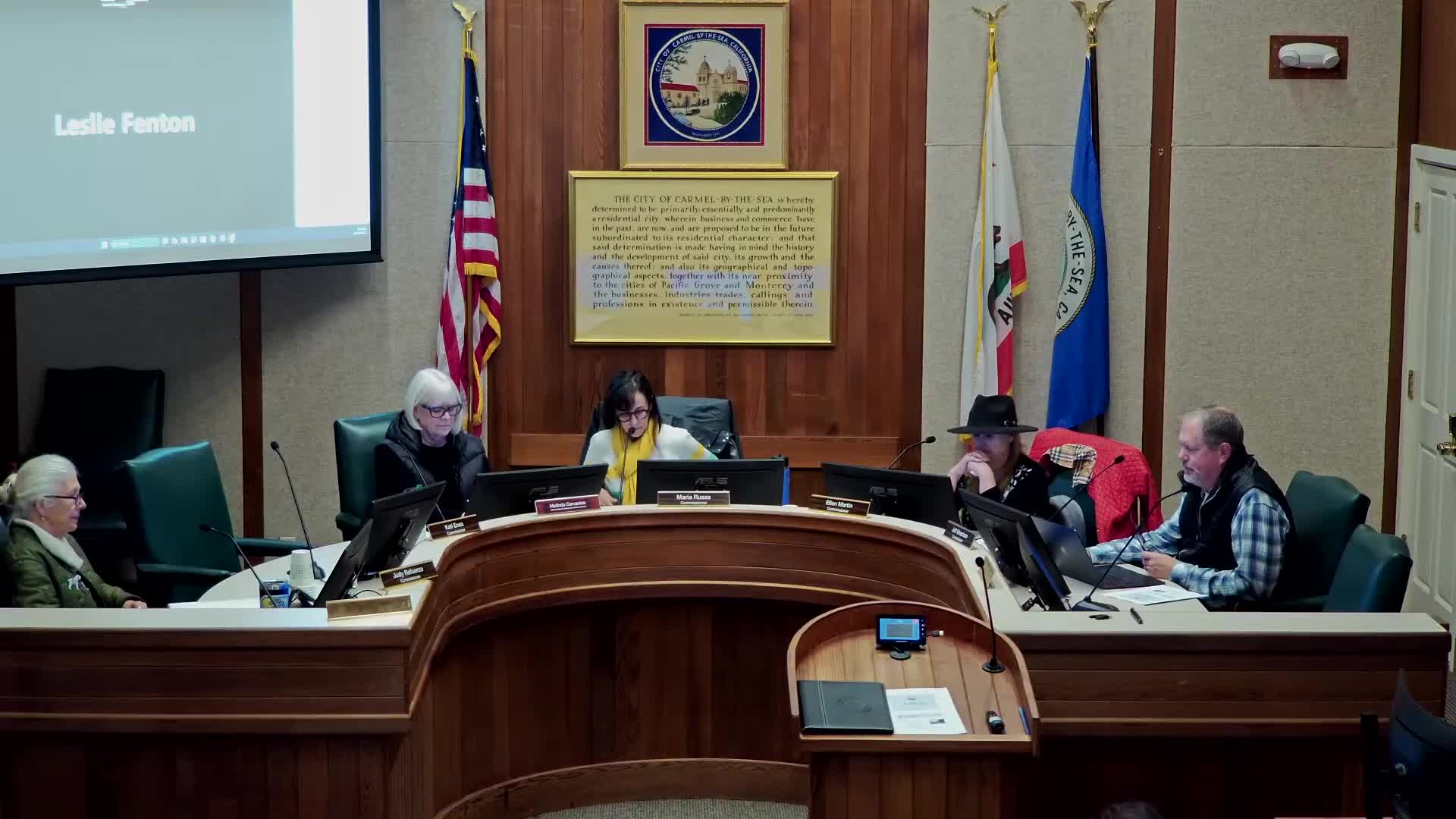Police, staff summarize busy Car Week; officers cite crowd control and parking as main issues
Get AI-powered insights, summaries, and transcripts
Subscribe
Summary
Police Chief Trejo and city staff presented an after-action review of Car Week events, citing heavy visitor volumes, a small number of arrests, towing and traffic enforcement statistics, and resident survey results; staff outlined next-year options including traffic-pattern changes, more officer staffing and community listening sessions.
Police Chief Trejo and Community Activities staff summarized the city’s Car Week after-action review, saying the events were busy but were handled without large public-safety incidents.
The presentation matters because tens of thousands of visitors pass through Carmel-by-the-Sea during Car Week, producing safety, parking and business impacts that the city and residents repeatedly identify in surveys.
Police Chief Trejo said the department recorded 137 traffic stops, issued about 70 citations, made seven arrests, towed 13 vehicles and documented one drunk-driving arrest. A small number of weapons were confiscated, and two high‑profile vandalism incidents (damaged McLarens) were investigated and a suspect was taken into custody, he said. “We had a no-tolerance approach to sideshows and burnouts,” Trejo said, adding that two injuries reported during events were from people who fell and were not event-caused.
Leslie Varney, Community Activities staff, reviewed event logistics and the parking-stall permit practice. She said some organized events (one identified as Concours on the Avenue) failed to clear equipment on the planned schedule and that rented parking stalls sometimes drew large crowds in front of businesses, producing calls to police for crowd control. Varney explained that businesses that rent parking stalls sign an agreement requiring them to manage crowd control and provide insurance; the permit fee structure was described as a mix of a per-spot daily fee and, after July 1, an updated permit schedule. Varney noted tow companies at times decline to remove high‑value vehicles because of liability concerns.
Trejo and staff reviewed resident survey results. Of roughly 422 total responses, about 65% of respondents (combined “loved,” “liked,” or “conflicted”) were not outright opposed; about 35% disliked Car Week. For responses classified as residents (about 200 people), Varney reported roughly 50 “loved it,” 72 “conflicted,” and 65 “didn’t like it.” Trejo said the resident responses matter because residents shoulder most localized impacts.
Suggested follow-up steps included: a community listening session to gather resident street‑level feedback; exploring alternate traffic routing (“serpentine” route) to reduce crowding on Ocean Avenue; continued use of speed humps and other traffic‑calming measures; testing of additional shuttle stops; and more officer staffing for future Car Weeks (police hiring in progress). Trejo also raised the idea of “sound cameras” to catch excessively loud vehicles but said legal and ethical reviews would be required before deployment.
Commission members and business representatives discussed potential changes such as expanding shuttle publicity, evaluating whether to limit the number of events that close Ocean Avenue, improving signage about parking and shuttle service, and clearer requirements for businesses that rent curb parking during events. Some commissioners urged keeping Car Week activity because of vibrancy and economic benefits; others said the city should consider consolidating or reducing the number of downtown closures to limit resident impacts.
The presentation concluded with staff and the police chief planning to brief the City Council and to run follow‑up community meetings and internal coordination with event organizers to firm up next year’s plan.
